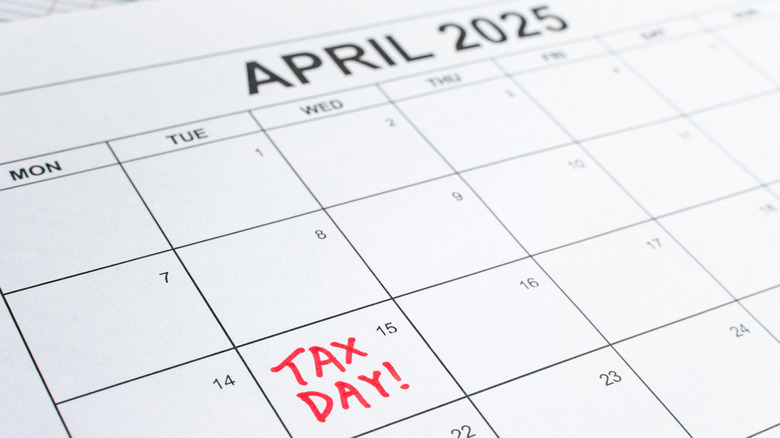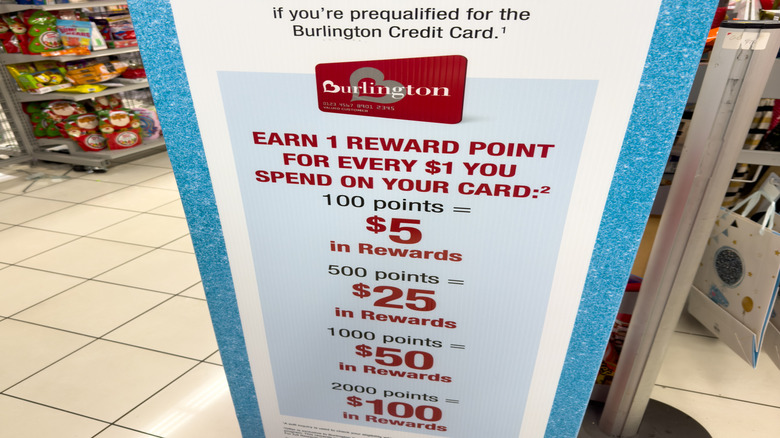If Your Household's Credit Card Debt Is Below This Number, You're Under The National Average
NerdWallet's American Household Credit Card Debt Study found an uptick in credit card debt between 2024 and 2025 — by 3.49%. Even worse is that, as of March 2025, a household with credit card debt had an average balance of $10,899, according to data from the Federal Reserve Bank of St. Louis and the 2022 Survey of Consumer Finances. This means the total amount of credit card debt owed in the United States is now above $650 billion. NerdWallet's survey found that 48% of respondents with credit card balances reported that the debt was due to charging necessities, while 41% reported that luxury items and other wants (rather than needs) contributed to what they owe.
The effect of this debt is greater than it appears. When adding in the impact of interest, the survey found that households owing $10,563 (the average figure as of September 2024) worth of revolving debt that only made the minimum payment required on this debt would actually end up paying back a whopping $28,683. As far as plans for paying off this debt, 30% of people surveyed, across all income levels, said that earning more money would serve as the impetus for paying off their credit card debt.
Keeping your credit card debt low
Of the things you should avoid using your credit card to pay for, one particular example is using your card to pay off loans. This is because your credit card will almost always have a higher interest rate than the loans in question. Similarly, also avoid paying your taxes with credit cards. Owing the IRS more than what's available in your checking account can, understandably, be scary so investigate payment plans with the IRS rather than entering your credit card. Plus, tax entities at state and local levels may also offer repayment plans.
While there are many different credit card mistakes to avoid, steering clear of significant balances can also be important. When only paying the minimum amount or an amount less than the full balance, interest accrues. This interest then gets added back to your balance. Ideally, consumers should create a plan in which their cards are paid off each month.
Strategies to pay off your credit cards can include the debt snowball plan in which consumers set up automatic payments for the minimum amount due on all of their outstanding debt. Then, they can determine any extra amount they might have within the household budget and put it towards the debt with the smallest balance. As you pay off the balance of one debt, you move on to the next lowest balance debt with the same approach. The debt avalanche method takes a similar approach but focuses on putting the extra cash toward the debt with the highest interest rate first.
Ways to leverage the power of credit cards
Used properly, credit cards can be a valuable tool in a household's finances. For starters, paying monthly statements on time can help people to build their credit, which can allow them to receive better interest rates on future loans while boosting their buying power. Plus, credit card statements can help people to monitor their household spending habits.
A particularly savvy way to use your credit card is to earn rewards or, in a sense, free money. In return for paying for a product or service, users with this type of credit card can receive cash back, get free airline miles, or even earn points to use on other purchases. With that said, ensure that your credit card's reward system meshes with your spending habits, and make sure to watch out for annual fees that can negate any reward benefits.
Another credit card benefit includes its security and fraud alerts and how users can dispute charges in effective ways. When an unauthorized charge appears on a statement, send the credit card company a letter within 60 days, detailing the error. While the company investigates the situation, the user doesn't have to pay the disputed amount, and interest can't be charged on it. The rest of the balance, however, still falls under the typical repayment arrangement. If the credit card company finds that the user was correct, they must remove that charge from the credit card statement.


